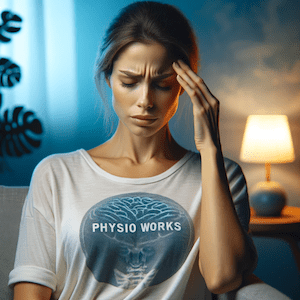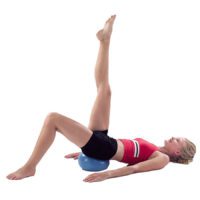TMJ Headache
Article by John Miller

TMJ Headache
Experiencing Jaw Headaches?
TMJ headaches, often stemming from the temporomandibular joint (TMJ), present as a persistent ache in the temple area, typically more pronounced on the side with the affected TMJ. These headaches can worsen with jaw tension, clenching, stress, or movement. Reducing tension in the jaw muscles may also decrease sensitivity in the jaw and surrounding areas.
Causes of TMJ Headache
TMJ dysfunction arises from built-up tension in the jaw and masticatory muscles. This tension is often linked with disorders like myotonic or articular disc derangements. Understanding these underlying causes is crucial for effective treatment.
The Role of a Physiotherapist in Diagnosing TMJ Headaches
A TMJ physiotherapist evaluates your jaw’s functionality to pinpoint potential causes of jaw headaches. This assessment is vital for devising an appropriate treatment plan.
Role of Imaging in Diagnosis
Imaging tests like OPG X-rays, CT scans, and MRIs can reveal oral conditions that might contribute to jaw headaches. However, these tests alone do not directly diagnose TMJ headaches.

Treatment Approaches for TMJ Headache
A skilled TMJ physiotherapist, with special training in craniomandibular physiotherapy, plays a pivotal role in treating jaw headaches. They focus on restoring TMJ function by improving joint motion, muscle tension, and coordination.
TMJ Physiotherapy
Physiotherapy for the jaw may include:
- Jaw muscle massage
- Relaxation techniques
- Joint mobilisation
- Corrective TMJ exercises
- Dry needling, Acupuncture
- Personalised strategies based on individual conditions
For professional guidance, it’s advisable to consult with a qualified TMJ physiotherapist.
Recent Research and Advances in TMJ Treatment
Recent studies have highlighted the effectiveness of multimodal approaches in treating TMJ headaches. This includes a combination of physiotherapy, patient education, and lifestyle modifications. Advances in techniques such as occlusion plate interventions and Botulinum toxin injection therapy have also shown promise in pain management and functional improvement of the TMJ.
Understanding Related Conditions
TMJ headaches often coexist with other conditions like neck pain and tension headaches. Addressing these related issues is an integral part of a comprehensive treatment plan.
When to Seek Help: Headache or Migraine FAQs
Understanding when a headache is just a headache and when it might be indicative of a more serious condition like a migraine is essential. If headaches persist or worsen, seeking professional advice is recommended.
Conclusion
TMJ headaches require a multifaceted approach for effective management. Consulting a TMJ physiotherapist ensures a tailored treatment plan, focusing on reducing pain and restoring function. Taking the step to seek professional advice is crucial for managing TMJ headaches effectively.
The Importance of Professional Advice
If you’re experiencing persistent jaw discomfort or headaches, don’t hesitate to consult a TMJ physiotherapist. With their knowledge and skill set, you can embark on a journey towards pain relief and improved jaw function.
Related Articles
- Headache, Neck & Jaw: Offers insights into various types of headaches, including TMJ headaches, and their connection to neck and jaw issues.
- Temporomandibular Disorder (TMD): Discusses the symptoms, causes, and treatment options for TMJ disorders, highlighting physiotherapy’s role in managing these conditions.
- TMJ FAQs: Provides answers to frequently asked questions about TMJ disorders, including how posture and stress impact TMJ issues.
- Headache? Migraine? What To Do? A Physiotherapist Guide: Offers guidance on managing headaches and migraines, with a focus on the role of physiotherapists in treatment.
- Jaw Pain: Explains complications associated with untreated TMJ disorders and how physiotherapy can help manage TMJ issues.
- Tension Headache: Discusses the differences between various headache types, including TMJ headaches, and offers FAQs related to headache concerns.
- What Causes TMJ?: Explores the potential causes of TMJ disorders and various treatment options available.
- Neck Headache: Describes the characteristics of different headaches and migraines, emphasising the importance of professional consultation for accurate diagnosis and treatment.
- Migraine: Focuses on severe headache symptoms and the importance of recognising urgent red flags in headache management.
















































